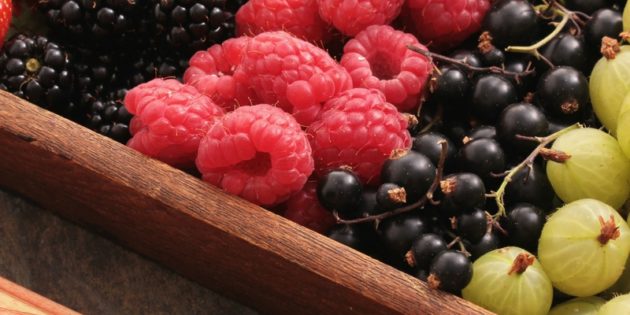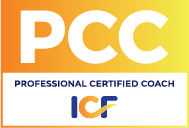Sugar isn’t very cool at the moment, but I assure you it’s a little misunderstood. Sugar can be a friend, but like friends, some better influence you than others. When you hear sugar-haters espousing the pitfalls of ‘sugar’ you have to ask ‘which sugar are you talking about?’. All sugars are simple carbohydrates, classed as either:
- Monosaccharides: glucose, fructose, galactose.
- Disaccharides: sucrose, lactose, maltose.
In our food, the sugars that are used as sweeteners are typically glucose (aka dextrose), fructose, sucrose, maltose, and high fructose corn syrup (HFCS); a sweetener manufactured from corn. But there’s sugar and then there’s S U G A R…
Is Sugar Bad for Me or Not?
In excess, yes. A high sugar diet has clear implications in the development of diabetes, obesity and dental caries. The World Health Organisation recommends that our intake of ‘free sugars’ be limited to less than 10% of our total energy intake. This means avoiding foods rich in added sugars, lollies, pastries, breakfast cereal, soft drink, juices, and syrups (to name a few). Now, keep in mind that our understanding of sugars is changing all the time and the figures we have remain to be hotly debated, they are all still guidelines.
Plant foods and dairy naturally contain sugars but need not be avoided. There is zero benefit to eliminating all sugars from your diet. Sugars naturally occurring in our foods aren’t toxic. We need them to survive. It’s nearly that simple. They accompany a plethora of vitamins, minerals, antioxidants, and phytochemicals in plant foods, and those guys are the ones we want to be chummy with.
We know that sucrose, your friendly table-hood sugar, is the stuff to watch out for, of course it’s not just found in home pantries but in many of our processed foods, sauces, jams, beverages and so on. Sucrose has been linked to a number of health issues from dental caries to diabetes. So, perhaps to avoid misrepresentation when ‘hating on sugar’ we need to say ‘I’m unfriending added sugar, especially sucrose and high fructose-corn syrup’? Hmmm, yes bit of a mouthful, but at least reasonably accurate.
Why Does Everyone Hate Fructose?
Fructose, naturally present in honey, vegetables and fruit, is now being singled out as the ‘bad’ sugar. Had it been the case that our only intake of fructose had been from nature, we wouldn’t be having this conversation. Evidently, the majority comes from sucrose and HFCS in processed and junk food, and for sure, this is no bueno.
Fructose is metabolised differently to other sugars. Where glucose can be broken down efficiently by most body cells, fructose must first head to the liver to get things going. This is a normal process, and fine with a healthy intake of fructose (e.g. in a balanced diet) but when intake is high, then excessive amounts must be metabolised. There is some evidence that this causes fatty deposits in the liver cells, which can contribute to non-alcoholic fatty liver disease and raised LDL cholesterol.
This is why lots of foodies and nutritionists out there promote the use of low-fructose sweeteners such as rice malt syrup. Sorry, but it’s still sugar. In fact, rice malt syrup is heavily processed in comparison to something like honey, and it has a high GI, which causes blood sugar to peak, and then plummet.
The message here is that when we consume excess kilojoules of fructose, like any other sugar it will be detrimental to our health. It’s the quantity that is important in this case.
Does Sugar Turn to Fat?
It’s not that simple luckily. Pigs and cows can turn sugar to fat quite efficiently, but under normal circumstances we humans can’t. The process is called denovo (new) lipogenesis (fat creation), and it’s complicated. True, there is some association between sugar and body fat, but it doesn’t just transform into fat and retire to your bum to live out its days as lots of hoopla will tell you. It’s more to do with sugar causing an increase of insulin (which helps glucose move from the blood to inside our cells to be used to make energy). Excess sugar is either burnt by our cells as energy or if it’s doesn’t make it to this party it heads out the door via urine, little if any is converted fat. Just to finish the story, it’s insulin that inhibits fat use and encourages fat storage, hence high sugar = high insulin = fat storage.
What’s the Go with Honey?
Let’s not be cheeky… Honey is still a sugar, although, it’s a sure-fire better option to refined sugar and artificial sweeteners. At Well College, the memo is always to eat as close to nature as possible, and honey is just about as natural as it gets! Unlike other sweeteners, pure honey undergoes little to no processing. Honey comes in distinct floral varieties, which you should choose when shopping! Not a supermarket blend. Think Yellow Box, Acacia and Manuka for example. Floral honeys in particular, have a lower glycaemic index than table sugar, have anti-microbial properties (Manuka is great for healing wounds and fighting illness), and are rich in antioxidants such as flavonoids that help our bodies combat inflammation.
50 shades of Sshhhugar…
At last count there were over 50 different names for sugar on food labels! Dextrose, corn syrup, maltose, molasses to name a few. To identify added sugars, look to the ingredients list, not the nutrition panel (the nutrition panel has only the total sugars and doesn’t differentiate between those that are added and those there naturally). If any of the sugar aliases appear, then know that they’re making the product sweeter. The following are supposedly healthier than others, but don’t be fooled. Honey, maple syrup, rice malt syrup, coconut sugar, and agave are still sugars! An excess of them is not likely to be good for us.
Sweet Nutrition Tips…
- Dump artificial sweeteners. We’re not friends with them anymore. They can be more harmful than excessive sugar intake, and should be treated as such.
- Pay attention to, and limit, added sugars. Feeling flat? Want something sweet? Choose fruit first. Cravings be gone!
- Use your head when sifting through the sugary news. You know more than you think. You know not to eat junk. You know to have a wholesome diet.
It seems it’s not sugar that is the problem, but how the sugar message is delivered. Don’t doubt yourself. Common sense, variety and moderation. The message is simple, and awesome.
Choose your friends wisely.
Words by Iydi Willis originally here.
Associate Nutritionist, consultant health & nutrition blogger for Well College.

















Leave A Response